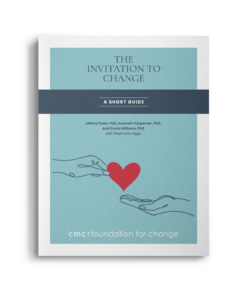NEW WORKBOOK
All profits from sales help us provide free and low-cost resources to communities who need them.
The Invitation to Change: A Short Guide is a practical guide to the 9 core topics of the Invitation to Change Approach, the helping approach at the core of everything we do.
